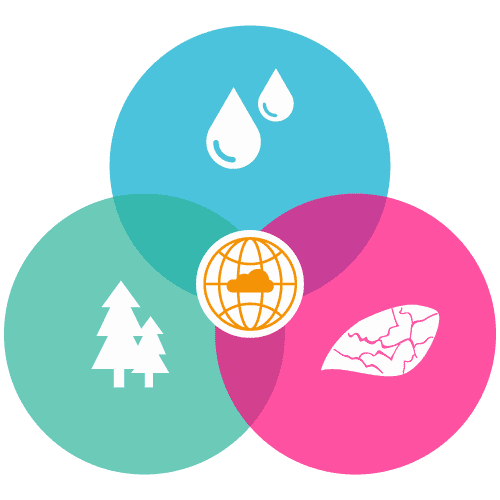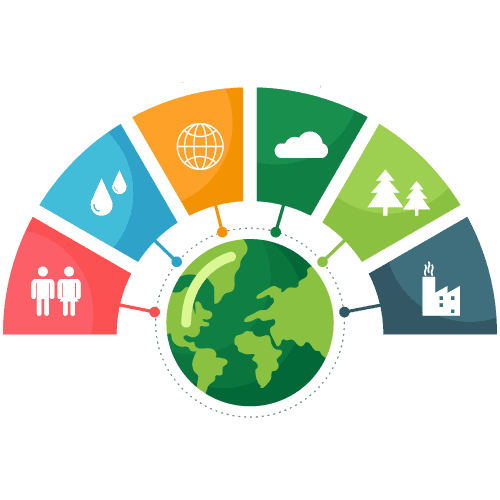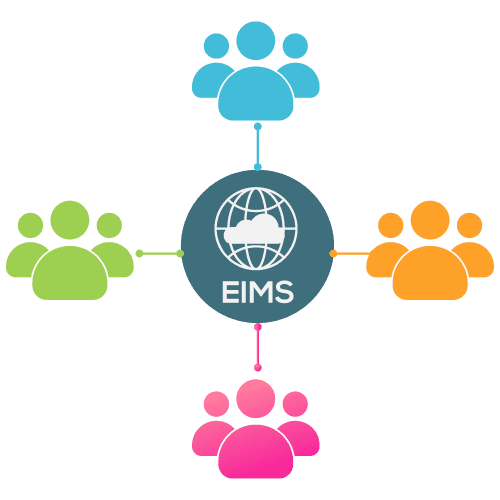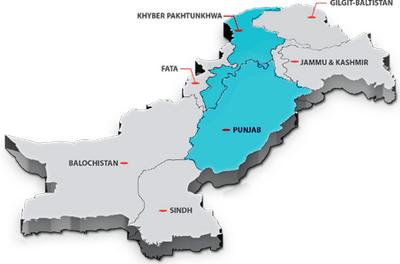Background
Pakistan has a long yet patchy history of environmental information & management. Since the adoption of National Conservation Strategy (NCS) in early 1992 followed by signing of various conventions, including the UNCBD, UNFCCC and UNCCD, Pakistan has increasingly gathered and synthesized environmental data into explicit information for informed decision-making. Several public sector and civil society institutions are engaged in generating the environmental information. These include the line-departments of environment protection, agriculture, forestry, wildlife, transport, industry, fisheries, livestock, irrigation, public health, and others. However, to date the data and information collected is fragmented, patchy and of un-certain quality. The provision of regular, consistent and reliable environmental information - as well smooth cross-sector coordination among key institutions such as P&Ds, MoPDR, EPAs - is a challenge. Though the capacity and awareness about environment have reasonably enhanced, the sustainable environmental information management and integration of environment and development are yet to be adequately attained. With this premise, a project titled ‘Generating Global Environmental Benefits from Improved Decision-Making Systems and Local Planning in Pakistan (GEB)’ has has been launched. The project is in full conformity with the needs and priorities of not only the Government of Pakistan but also with the priorities of GEF and UNDP. The project falls under the GEF-5 Focal Area of Cross-Cutting Capacity Development (CCCD), addressing all of its five objectives but notably the second, ‘to generate, access and use information and knowledge’ and the third, ‘to strengthen capacities to develop policy and legislative frameworks’.
The GEB project also sits neatly with the UNDP strategic priority of ‘strengthened national capacities to mainstream environment and energy concerns into national development plans and implementation systems’ and with its country programme outcome: ‘commitments under global conventions on biodiversity implemented’. In fact, there is a strong convergence of interests in enabling Pakistan to secure the sustainability of its long-term economic development by protecting the natural resource-base and to enhance Pakistan’s global contribution to environment and sustainable development. The GEB project strategically focuses on addressing the root causes of environmental considerations, along with the economic planning and development. It targets sectors and institutions where capacities and actions are most needed and where success and impacts are more likely. These includes, entities responsible for economic and environmental planning and management, as well as those that shape public and political opinions that are fundamental to the success of environment development integration.
 The regular generation, flow and availability of consistent information has been a major hurdle, especially in environmental reporting. While previous efforts in Pakistan did produce some environment related reports/environmental profiles, the ability to regularly produce such reports remained contingent on a functioning system of data generation/gathering and availability. The focus of this outcome is, therefore, on strengthening the gathering of primary data, its compilation, and flow to a point where it is housed and accessible as a one-stop shop for consistent & reliable data. This will be the data that, at least, various government/non-government plans, projects and programmes would source and reference for future planning.
The regular generation, flow and availability of consistent information has been a major hurdle, especially in environmental reporting. While previous efforts in Pakistan did produce some environment related reports/environmental profiles, the ability to regularly produce such reports remained contingent on a functioning system of data generation/gathering and availability. The focus of this outcome is, therefore, on strengthening the gathering of primary data, its compilation, and flow to a point where it is housed and accessible as a one-stop shop for consistent & reliable data. This will be the data that, at least, various government/non-government plans, projects and programmes would source and reference for future planning.
 This outcome aims to identify & leveraging investments and efforts already made in Pakistan regarding environmental information management systems (EIMSs) and working towards effective coordination and longer term sustainability of what already exists in true spirit of the intended GEF/UNDP funding through the GEB project, and establishing a pilot Environmental Information Management System (EIMS) in Pakistan. In view of the above and the importance of having a functional EIMS, it is important to set a realistic plan and targets, and set up a pilot EIMS at MoCC/pilot systems in Punjab and KP provinces.
This outcome aims to identify & leveraging investments and efforts already made in Pakistan regarding environmental information management systems (EIMSs) and working towards effective coordination and longer term sustainability of what already exists in true spirit of the intended GEF/UNDP funding through the GEB project, and establishing a pilot Environmental Information Management System (EIMS) in Pakistan. In view of the above and the importance of having a functional EIMS, it is important to set a realistic plan and targets, and set up a pilot EIMS at MoCC/pilot systems in Punjab and KP provinces. The lack of informed public opinion and broader awareness and commitment towards environmental information & management are in fact two major barriers in integrating locally and globally important environmental concerns in development. Therefore, this outcome of capacity building for environmental information & management (under GEB project), in departure from the usual course of developing more guidelines and providing more trainings to select functions, is focused on addressing the core constraints - through novel capacity building activities - impeding progress towards establishing pilot EIMSs in Pakistan.
The lack of informed public opinion and broader awareness and commitment towards environmental information & management are in fact two major barriers in integrating locally and globally important environmental concerns in development. Therefore, this outcome of capacity building for environmental information & management (under GEB project), in departure from the usual course of developing more guidelines and providing more trainings to select functions, is focused on addressing the core constraints - through novel capacity building activities - impeding progress towards establishing pilot EIMSs in Pakistan.